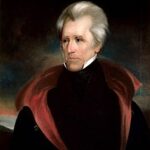The Constitutional Confrontation
The Nullification Crisis erupted when South Carolina declared federal tariffs unconstitutional in 1832. The state claimed authority to nullify federal laws within its borders. President Andrew Jackson viewed this as treasonous defiance of federal authority. ⚠️ He immediately prepared for potential military confrontation against his own citizens.
Jackson’s Aggressive Response
Jackson requested congressional authorization to use military force against South Carolina. He moved federal troops and naval vessels to Charleston Harbor. The president issued a stern proclamation denying states’ rights to nullify federal laws. His response escalated tensions beyond diplomatic resolution.
Constitutional Powers in Question
Critics argued Jackson exceeded constitutional presidential powers through his military threats. 📊 Legal scholars debated whether federal force against states was constitutional. The crisis revealed fundamental disagreements about federal versus state authority. Jackson’s approach prioritized union preservation over constitutional limitations. 💰 Economic interests drove the conflict, but Jackson’s response transformed it into a constitutional showdown.
Impact:
Immediate Political Consequences
The Nullification Crisis created lasting political divisions across America. Jackson’s military threat polarized Congress along sectional lines. Northern states generally supported federal authority over states’ rights. Southern states viewed Jackson’s response as dangerous federal overreach. 🔥 The crisis foreshadowed future conflicts over federal power.
Constitutional Precedent Established
Jackson’s actions established precedent for federal force against defiant states. Future presidents would reference this crisis when facing similar challenges. The resolution through Henry Clay’s compromise tariff avoided immediate conflict. However, underlying constitutional questions remained unresolved. 📉 Trust between federal government and southern states declined permanently.
Long-term National Impact
The crisis accelerated sectional tensions leading toward Civil War. South Carolina’s nullification theory evolved into secession doctrine. Jackson’s forceful response demonstrated federal government’s willingness to preserve union. 🌍 International observers questioned American democratic stability. The precedent of military threats against states would resurface during secession crises three decades later.
